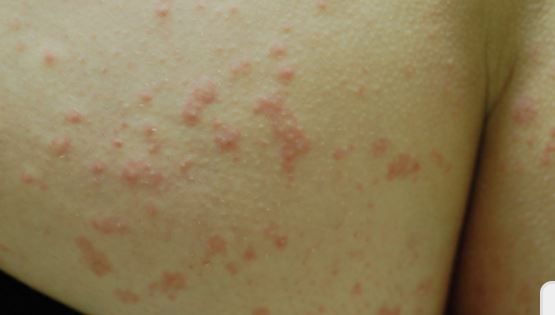Buttock Crack Infection

Boils are painful pus-filled bumps or sores that can occur anywhere on your skin. Boils on buttocks can occur due to various factors such as bacterial infection and STDs. Explore pictures, causes, signs and symptoms of boils on butt cheek or crack. Jul 19, 2017 - Intertrigo can also affect the skin between the buttocks. In severe cases, intertrigo may cause a foul odor, and the skin may crack and bleed.
The most common symptom of a is having a red, tender, and painful bump or lump on the skin. You may also see red skin and swelling around the bump. A boil usually begins as a painful or tender spot on the skin and tends to be small, or about the size of a pea. Kv usilitelj moschnosti na lampe gu 81m lyrics.
It usually becomes firm or hard. The bump can continue to grow and can fill with pus.
At this stage, it tends to be softer and larger. Eventually, a yellow or white tip and can rupture with pus leakage. Some boils don’t rupture and may end up with a crust that forms on top of the bump. A boil can also ooze clear liquid. Boils can be big and reach the size of a golf ball.
Several skin conditions can resemble boils. They include cystic acne, infected sebaceous cysts, and other skin infections. Bacterial infections are the most common cause of boils on the buttocks. Staphylococcus aureus is usually the bacterium responsible for the boils. This bacterium often lives on the skin or inside the nose. Skin folds are a common site for boils. Areas of the body that have hair, sweat, and friction are more likely to have boils.
Common risk factors for boils include: • being a Staphylococcus aureus carrier, which means chronically having this bacterium on the skin • having • having close contact with or living with someone who has boils • having • having a condition that reduces your immune system function • having from iron deficiency • having small cuts or injuries to the skin • tobacco smoking. There are many treatment options available for boils. However, it’s important to avoid popping or puncturing the boil yourself. The infection can spread to other parts of the body and lead to complications.
Home remedies Home remedies for addressing boils include: • Warm compresses. • Homeopathic remedies, such as arnica, silica, or sulfur. Find,, and online. • A well-balanced diet that includes nutrients, such as vitamin C.
Oral and topical medications Oral and topical medications for preventing boils from occurring or spreading include: • Oral and topical antibiotics. • Topical antiseptics. • Antibacterial soap.
• Hand sanitizer. Lifestyle changes Lifestyle changes include: • not picking at the boil or other sores • washing your clothes and towels separately to avoid spreading the infection • changing sheets daily and washing them • bathing regularly • keeping the home clean • losing weight to reduce skin folds • avoiding gyms, swimming pools, and contact sports while your boils are healing, so any infection doesn’t spread to others • avoiding tobacco smoking • eating a healthy diet Medical procedures In some cases, large boils that don’t go away on their own require medical intervention. Medical procedures for boils include: • making an incision (lancing) and draining the boil • packing an incision with gauze to collect the pus and help allow the skin to heal properly. Boils are contagious and can spread to other people. You can also spread them to other parts of your own body. However, you can take several steps to prevent boils: • Avoid close skin contact with people who have boils or who are Staphylococcus aureus carriers.
• Wash your hands throughout the day. • Bathe regularly. • Wash all clothes, towels, and other personal items after having a boil. • Avoid sharing towels and other personal items with other people. • Protect and cover all open skin injuries or wounds.